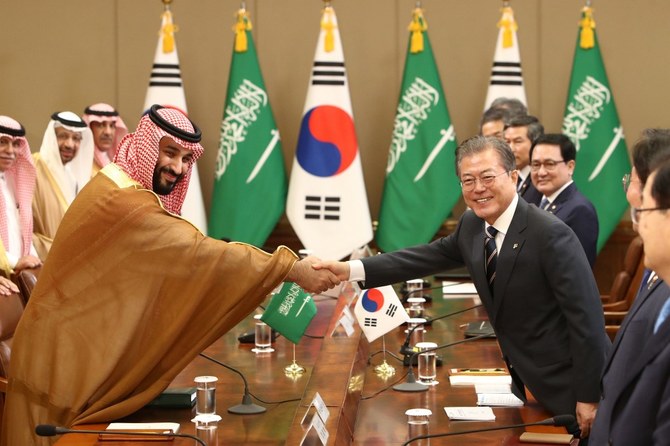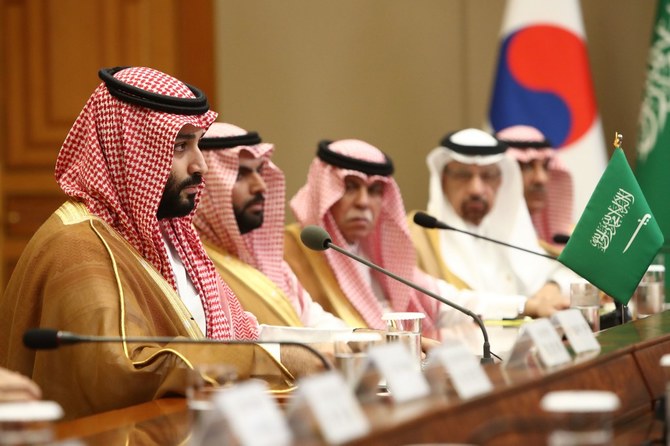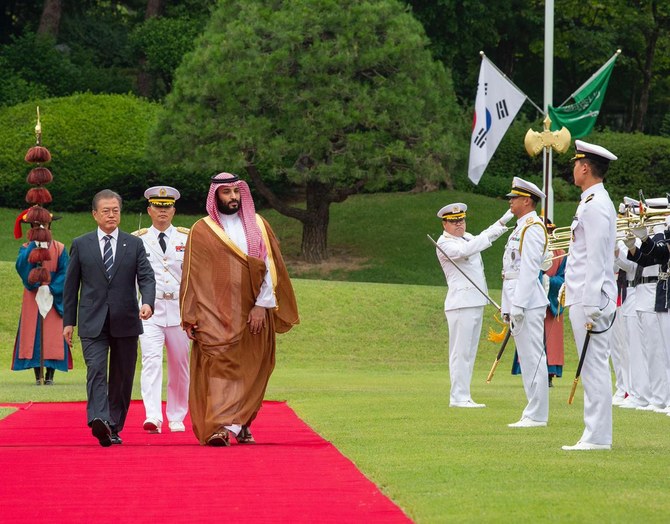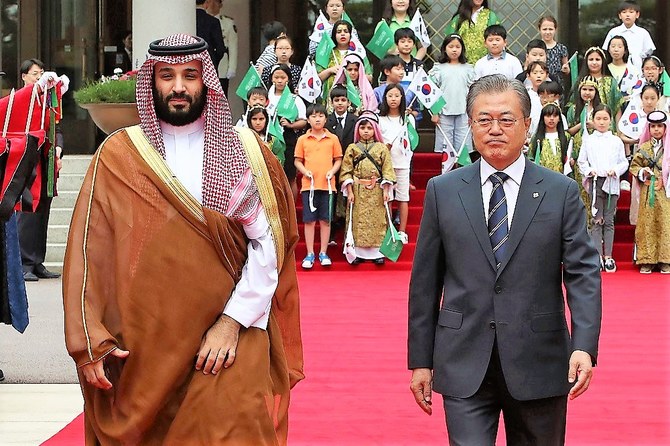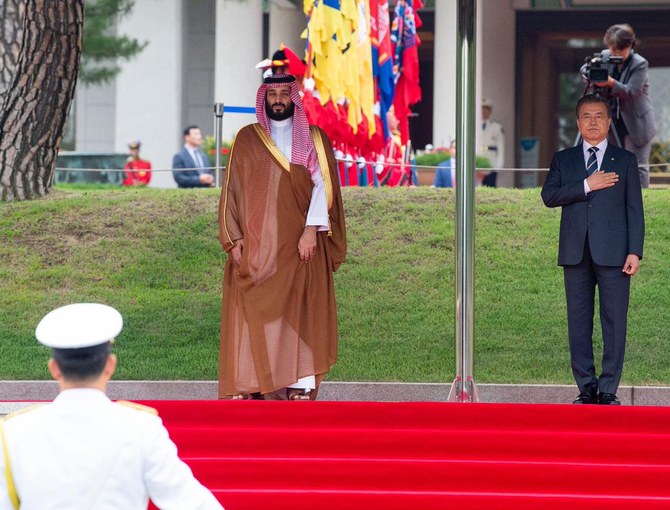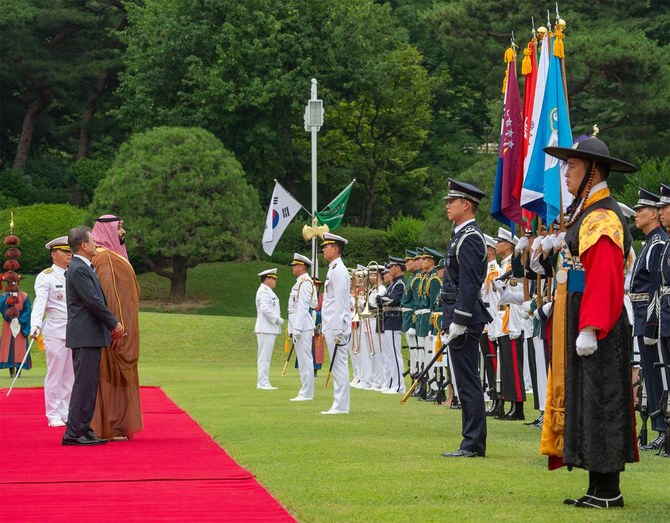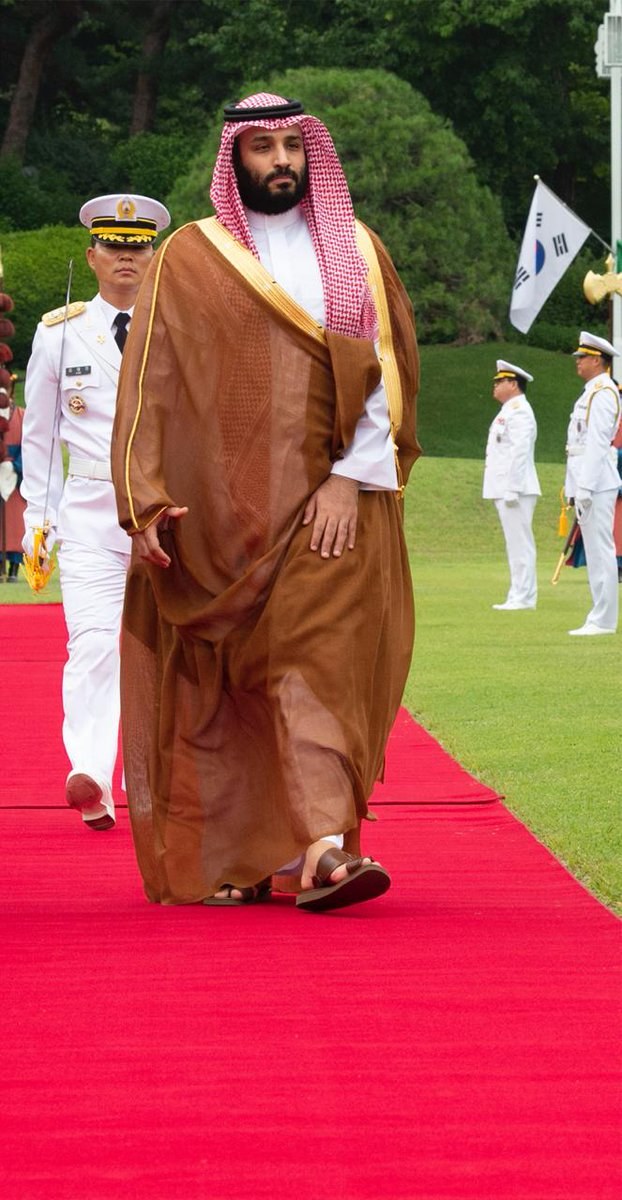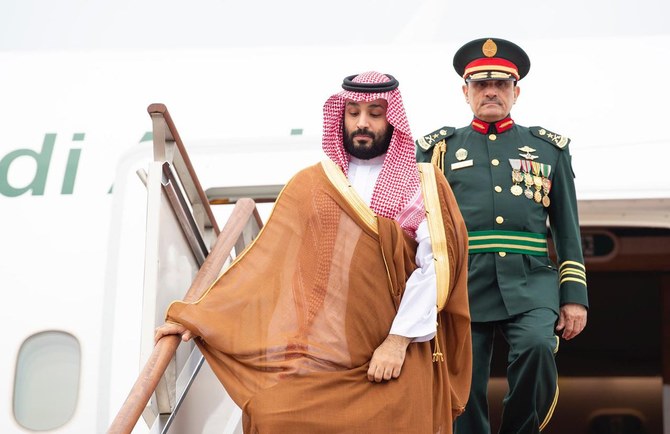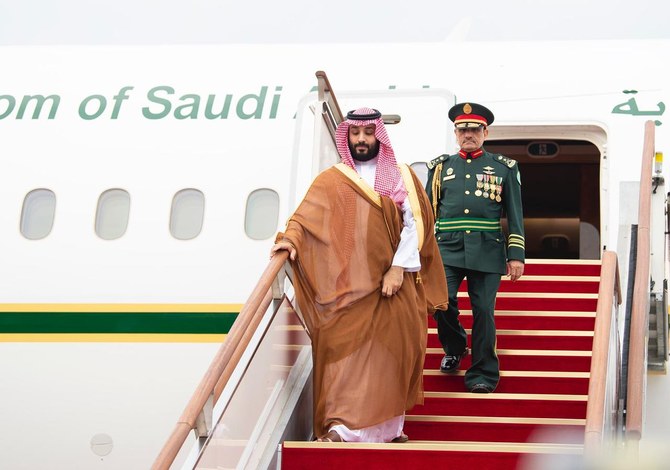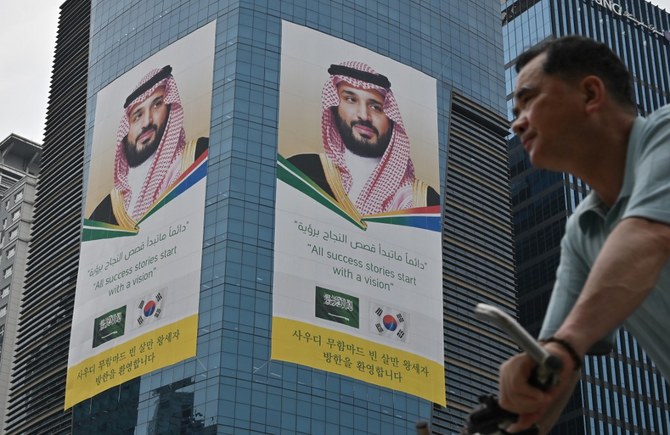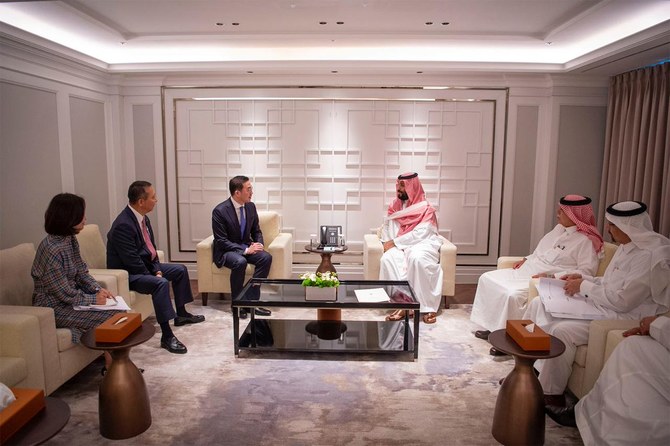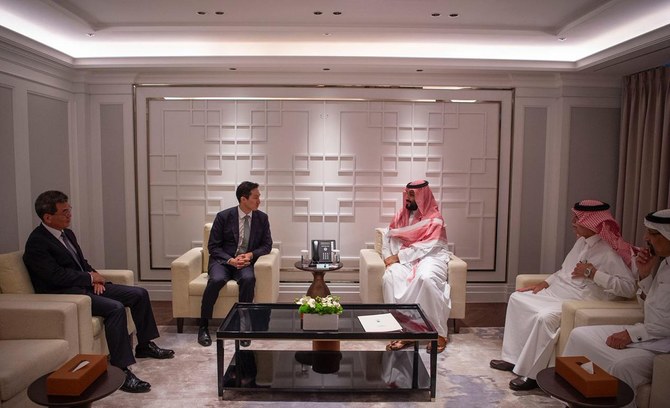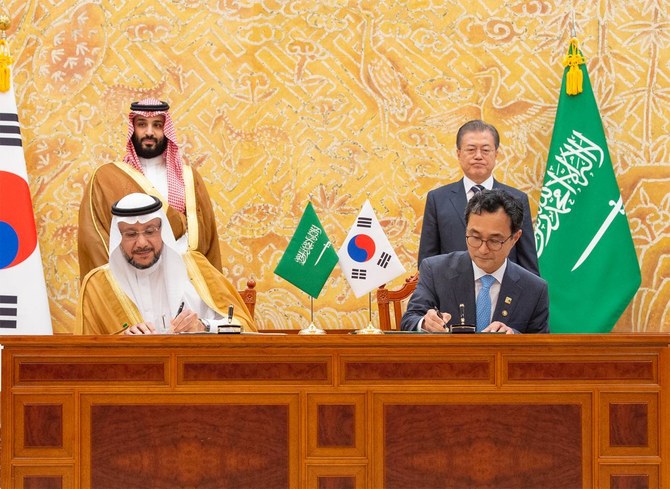SEOUL: Saudi Arabia and South Korea signed an $8.3 billion economic cooperation pact on Wednesday during Crown Prince Mohammed bin Salman’s first visit to Seoul.
The signing followed talks between the crown prince and South Korean President Moon Jae-in to strengthen bilateral ties between the two governments.
The crown prince, who also serves as deputy prime minister and minister of defense of the Kingdom, was received by South Korean Prime Minister Lee Nak-yeon and Saudi Ambassador to Seoul Riyadh Al-Mubaraki. The Saudi leader and Moon inspected an honor guard at the presidential Blue House in central Seoul before delegations from both countries conducted the summit.
During the summit talks, President Moon expressed hope the bilateral relationship would take a leap forward on the occasion of the crown prince’s visit to South Korea, the first by an heir to the throne of the world’s largest oil exporter since 1998.
“Saudi Arabia is the largest oil supplier for us, and it’s the biggest customer for South Korean construction firms. It is also our No. 1 trade partner in the Middle East,” Moon said, referring to Saudi’s Vision 2030 project as a key area of mutual cooperation.
“As a partner of the Vision 2030 project, South Korea will expand cooperation with Saudi Arabia to the areas of information and communications technology, smart infrastructure, defense, health and medicine and others beyond the traditional cooperation on energy and construction,” Moon said.
#عاجل_واس
سمو #ولي_العهد يصل إلى كوريا الجنوبية.#محمد_بن_سلمان_في_كوريا#واس pic.twitter.com/ZQmkGvSzWT— واس (@spagov) June 26, 2019
Saudi Aramco
Most of the agreement is in the form of a $6 billion deal between Saudi Aramco and the Korean company S-Oil to build an oil refinery and downstream petrochemical facilities in South Korea.
A giant banner welcoming the crown prince was on display at the Seoul headquarters of S-Oil, South Korea’s third-biggest refiner, which is majority owned by Aramco.
Prince Mohammed said the Kingdom planned to invest even more in South Korea, especially on expanding collaboration in the fields of energy, automotive, tourism and health.
“The people of both countries will thrive through cooperation in the sectors of defense and economy,” he said.
President Moon Jae-in said his government would provide full support to Saudi Arabia’s efforts to diversify its economy away from its dependence on energy.
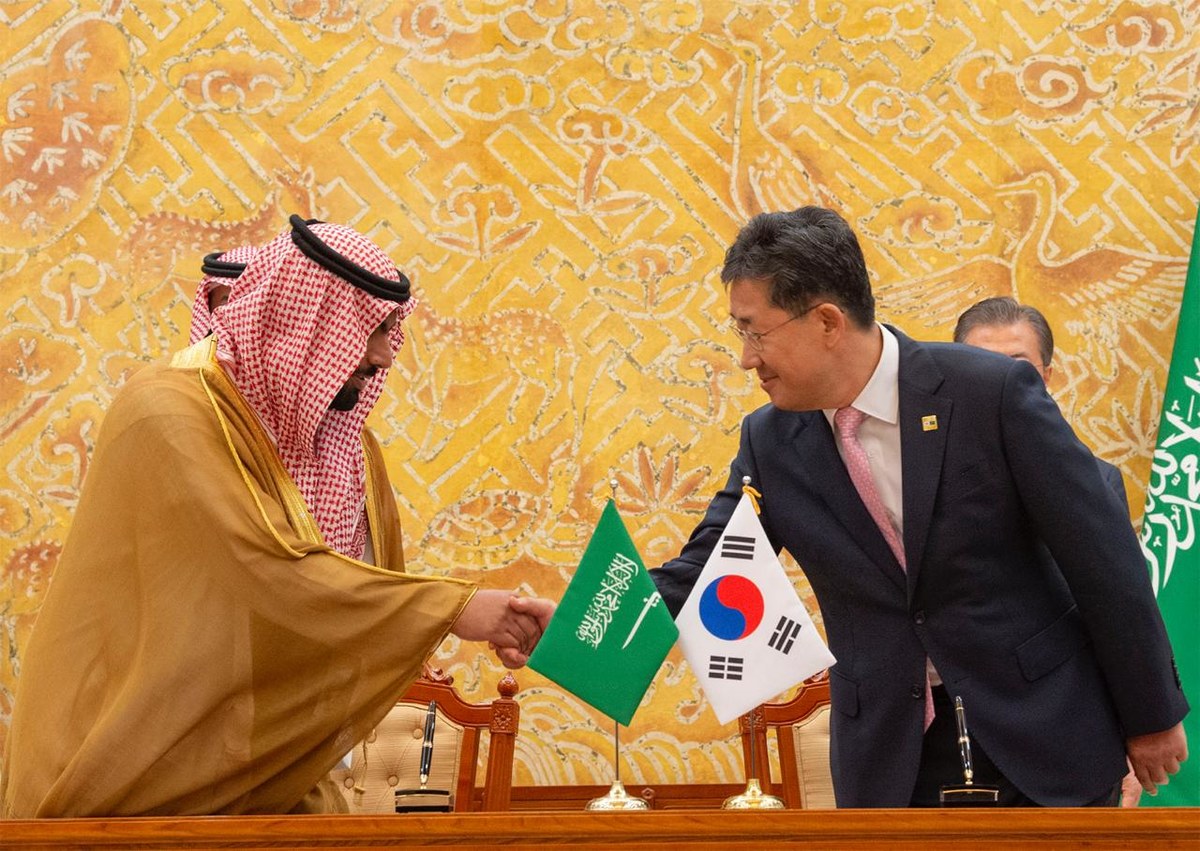
The two leaders discussed ways of boosting their relationship, with a focus on the new industrial sectors of information and communications technology, hydrogen energy, robots, health, medical services and culture.
Saudi Arabia is South Korea’s “biggest construction market overseas, the largest investor in the country among countries in the Middle East and also the biggest trading partner in the region,” the president said.

The National Intellectual Property Strategy Program was signed in the presence of the crown prince and the South Korean president. (Supplied)
The $8.3bn economic deal also involved several other agreements between Aramco and Korean companies, including the Korea National Oil Corporation, Hyundai Heavy Industries and carmaker Hyundai Motor.
Aramco alone signed 12 separate agreements worth billions of dollars with South Korean partners as it plans to increase its global footprint over the next decade. One of the deals, with Hyundai, is for cooperation on hydrogen-fuelled cars.
The crown prince, on the first visit to South Korea since 1998 by the heir to the Saudi throne, held talks with the heads of South Korea’s biggest conglomerates, including Samsung heir Lee Jae-yong; Chung Eui-sun, vice chairman of Hyundai Motor Group; Chey Tae-won, chairman of SK Group; LG chairman Koo Kwang-mo; and Chung Ki-sun, senior executive vice president of Hyundai Heavy Industries.
“I hope companies from both nations can set up a strategic and cooperative relationship through vibrant business activity,” the crown prince said.
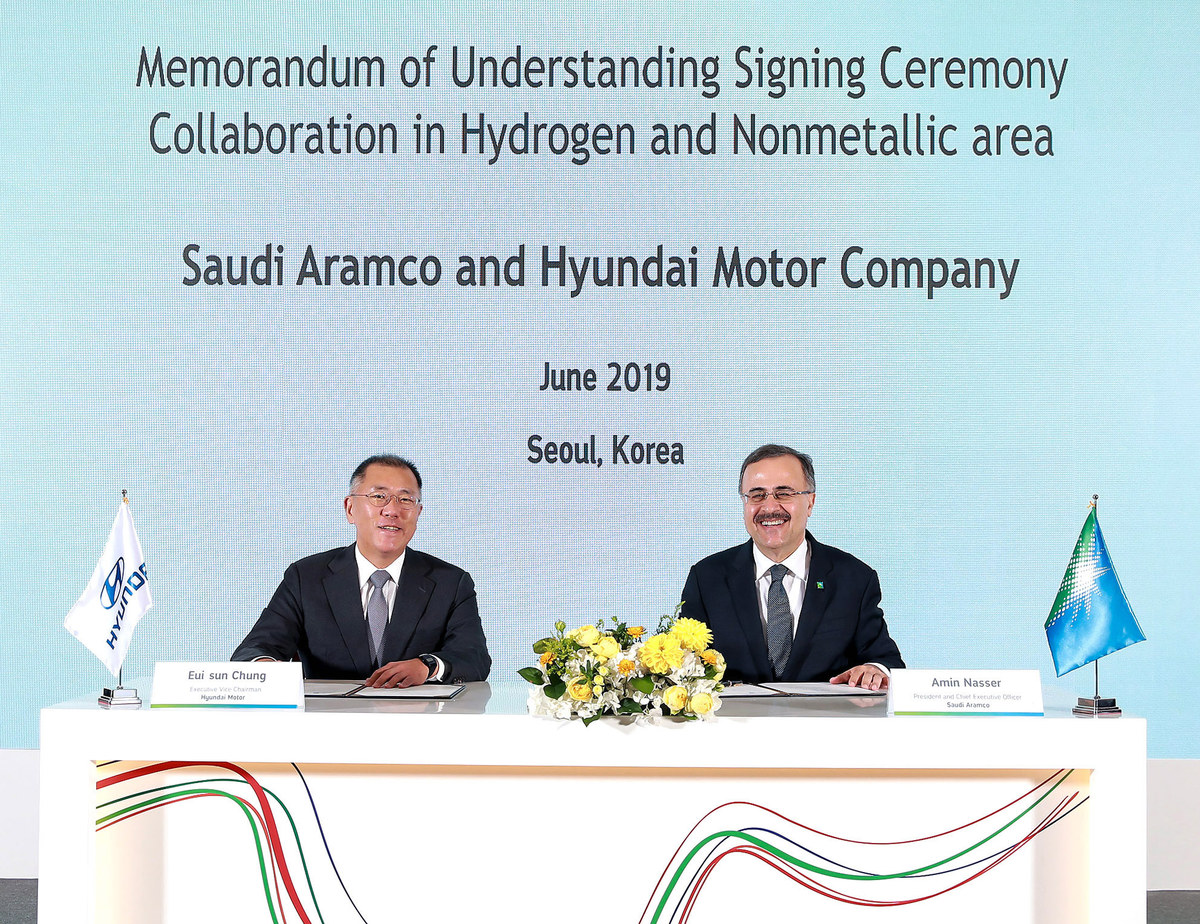
Hyundai Motor and Aramco signed an MoU to cooperate on hydrogen energy. (Supplied)
Regional stability
Prince Mohammed and the prime minister jointly condemned terrorism that harmed energy security and regional stability in the Middle East, including attacks by Iran-backed Houthi militias in Yemen on Abha airport in southern Saudi Arabia.
The crown prince pledged to help with any fuel shortages suffered by South Korea in the event of supply disruption caused by tension in the Middle East.
Seoul’s Ministry of Trade, Industry and Energy, meanwhile, said it has agreed with its Saudi Arabian counterpart to join hands in the automobile segment for the development of environment-friendly cars.
“Both governments will cooperate in developing technologies to utilize hydrogen as an alternative to traditional fossil fuels as well, the ministry said in a statement.
After South Korea, the crown prince is scheduled to travel to Japan to head the Saudi Arabian delegation at the G20 Summit in Osaka on June 28-29.
#عاجل_واس
جانب من وصول سمو #ولي_العهد إلى كوريا الجنوبية.#محمد_بن_سلمان_في_كوريا#واس pic.twitter.com/HNyv6y2Wvk— واس (@spagov) June 26, 2019



